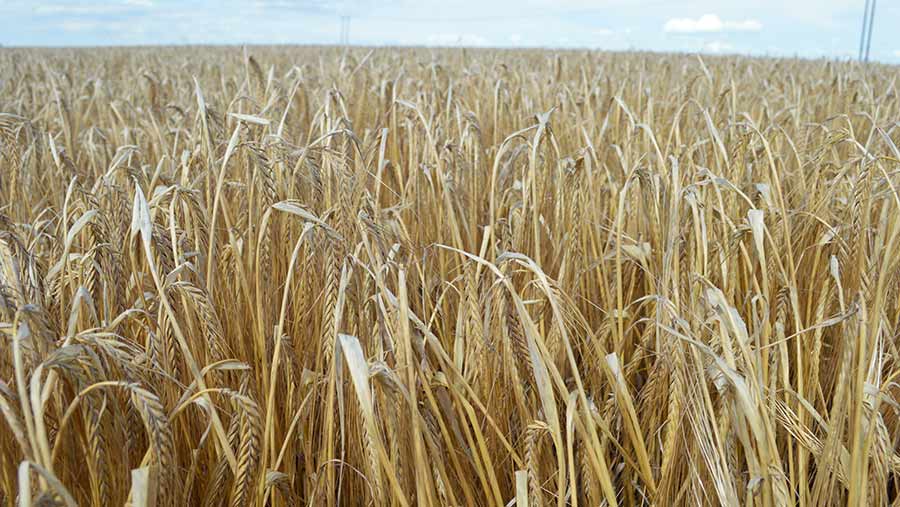Barley markets under pressure from large stocks and crops

The feed barley market is following wheat down, suffering from similar issues, including larger new-crop prospects and dulled demand.
In the feed market, there is also sustained competition from good availability of maize.
Barley use in animal feed in the year to the end of March was 1.037m tonnes – a drop of 14.4% compared with the previous 12 months and the lowest level for six years.
Wheat use at almost 4.9m tonnes was up just 1.6%, while maize use in the same period rose almost 64% to 559,000t.
See also: 6 top tips to minimise compaction at harvest
Barley market pointers
- Competition for cheap maize means lower barley use for feed
- Malting premiums holding as farmers reluctant to commit
- Brexit means export uncertainty after October 2019
- GB winter barley planting area for 2019-20 likely to rise by up 14% (AHDB Early Bird Survey on planting intentions)
UK barley exports have been relatively quiet this season, says AHDB Cereals and Oilseeds. Stronger sterling has pressured prices and there has been strong competition from Black Sea supplies.
New-crop harvest prices are between £110-£118/t ex-farm as available – a discount of up to £11/t off old-crop prices. However, some regions are seeing little, if any, difference between old- and new-crop values.
The Brexit delay until 31 October has stymied new-crop barley export prospects, other than for harvest and immediately post harvest.
Russia, Ukraine and Canada look like planting more barley, but Chinese demand is uncertain because of African swine fever.
While the UK would not be likely to ship barley to China, increased demand for European supply could buoy prices, say traders.
Robin Appel trading director Jonathan Arnold said the spring malting barley price has held up well, despite potentially not being able to export.
The November premium over feed is at least at £25/t, compared with a long-term average premium of £15-£25/t.
However, growers struggled to make malting spec with the 2018 crop and so have been cautious about committing for 2019.
